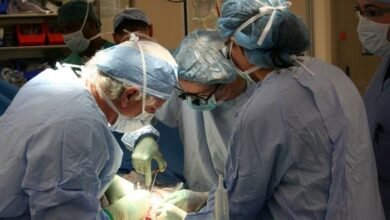STDs and Safe Sex Practices: What You Need to Know

Sexually transmitted diseases (STDs) are a significant public health concern, affecting millions of people worldwide. Despite growing awareness, misconceptions about STDs and safe sex practices persist. Are you fully informed about how to protect yourself and your partner?
This article addresses common questions about STDs and safe sex practices, helping you make informed choices for a healthier and safer sexual life.
What Are STDs?
STDs, or sexually transmitted diseases, are infections passed from one person to another primarily through sexual contact. They can be caused by bacteria, viruses, or parasites and affect various parts of the body, including the genitals, mouth, and rectum.
Common STDs include:
- Chlamydia
- Gonorrhea
- Syphilis
- Human Papillomavirus (HPV)
- Genital Herpes
- Human Immunodeficiency Virus (HIV)
- Trichomoniasis
What Are the Symptoms of STDs?
Symptoms of STDs can vary widely or even be absent, making regular testing essential. Common symptoms include:
- Painful urination
- Unusual discharge from the genitals
- Itching or irritation in the genital area
- Pain during intercourse
- Sores, blisters, or warts on the genitals or mouth
However, some STDs, like HIV and HPV, may remain asymptomatic for years, making them particularly dangerous if untreated.
How Are STDs Transmitted?
STDs are transmitted through various forms of sexual contact, including:
- Vaginal intercourse
- Oral sex
- Anal sex
In some cases, STDs can also spread through non-sexual means, such as:
- Blood transfusions (rare with modern screening methods)
- Sharing needles
- From mother to child during childbirth or breastfeeding
What Are Safe Sex Practices?
Practicing safe sex significantly reduces the risk of contracting or spreading STDs. Here’s how to protect yourself and your partner:
- Use Condoms Consistently and Correctly
Male and female condoms act as a barrier, reducing the chance of STD transmission during vaginal, oral, or anal sex. - Limit Sexual Partners
Fewer partners lower your risk of exposure. Monogamous relationships with STD-free partners offer the highest level of protection. - Get Regular STD Testing
Routine testing is crucial, especially if you’re sexually active with multiple partners or starting a new relationship. - Communicate Openly
Discussing sexual history, STDs, and safe sex practices with your partner fosters trust and reduces risk. - Avoid High-Risk Behaviors
Activities like unprotected sex or sharing needles significantly increase the likelihood of infection. - Get Vaccinated
Vaccines are available for certain STDs, such as HPV and hepatitis B.
Can STDs Be Treated or Cured?
Yes, many STDs can be treated effectively, and some can even be cured with proper medical intervention:
- Bacterial STDs: Infections like chlamydia, gonorrhea, and syphilis can be cured with antibiotics.
- Viral STDs: Conditions like herpes and HIV can’t be cured but can be managed with antiviral medications.
- Parasitic STDs: Trichomoniasis is treatable with prescription medications.
Why Is Regular Testing Important?
Testing is crucial for early detection and treatment. Untreated STDs can lead to serious complications, including infertility, organ damage, and an increased risk of HIV. Testing recommendations include:
- Annual testing for sexually active individuals
- Testing before starting a new relationship
- Immediate testing if symptoms appear
FAQs About STDs and Safe Sex
1. Can you contract an STD without intercourse?
Yes, STDs like herpes and HPV can spread through skin-to-skin contact, and others may transmit via shared needles or from mother to child during childbirth.
2. Are condoms 100% effective in preventing STDs?
While condoms greatly reduce the risk, they aren’t 100% effective, especially against STDs spread through skin contact like herpes or HPV.
3. How often should I get tested for STDs?
If you’re sexually active, annual testing is recommended. More frequent testing may be necessary if you have multiple partners or engage in high-risk behaviors.
4. Is oral sex safe from STDs?
STDs like gonorrhea, herpes, and HPV can still spread through oral sex. Using barriers like condoms or dental dams can reduce risk.
5. Can STDs affect fertility?
Yes, untreated STDs like chlamydia and gonorrhea can cause infertility in both men and women by damaging reproductive organs.
6. What should I do if I test positive for an STD?
Seek medical treatment immediately, inform your partner(s), and follow your doctor’s guidance on prevention and management.
Final Thoughts
Understanding STDs and practicing safe sex is vital for your health and the well-being of your partners. By staying informed, getting tested regularly, and adopting protective measures, you can enjoy a fulfilling and responsible sexual life. Protect yourself and those you care about—knowledge and prevention are your best defenses against STDs.




